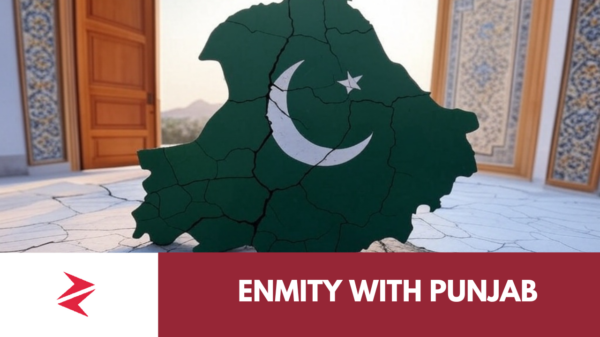The recent wave of assassinations and targeted killings in Pakistan has sparked significant concerns and speculations about the involvement of foreign intelligence agencies. The atmosphere is thick with tension, and the narratives from both Pakistani and Indian media are adding fuel to the fire. This article delves into the intricacies of these events, exploring the various angles and implications.
The Assassination of Brigadier (Retd) Amir Hamza
Brigadier (Retd) Amir Hamza, a former ISI officer and ex-chief of the 1122 Academy, was shot dead in Jhelum. This incident has not only raised alarms within Pakistan but has also attracted significant international attention. The timing and nature of his death have led many to speculate about the involvement of foreign intelligence agencies, particularly India’s RAW.
Media Reports and Credibility
The media plays a crucial role in shaping public perception. The Business Standard, an Indian publication, reported on Hamza’s assassination, sparking debates about the credibility and biases of such reports. While Pakistani sources have not explicitly blamed Indian agencies for this particular incident, the broader pattern of similar assassinations points towards a possible foreign hand.
Historical Context of Foreign Interference
The comparison to the US operations in Pakistan during the Musharraf era provides a historical context to these suspicions. During that period, US forces conducted numerous operations within Pakistani territory, often with the complicity or tacit approval of the Pakistani government. The fear is that a similar pattern might be emerging, with India playing a more active role in targeting individuals within Pakistan.
The Role of Intelligence Agencies
The activities of intelligence agencies often remain shrouded in mystery. However, patterns can sometimes reveal more than official statements. The increased frequency of assassinations of individuals linked to past incidents of terrorism, particularly those involving India, suggests a well-coordinated effort.
Pakistani Perspective
From the Pakistani perspective, there is a growing sense of betrayal and abandonment. Some believe that the current regime might be turning a blind eye or even facilitating these operations to normalize ties with India. This suspicion is bolstered by reports that Pakistani authorities have presented dossiers to the UN, accusing India’s RAW of orchestrating these assassinations.
Indian Perspective
On the other hand, Indian media has been quick to link these assassinations to individuals involved in terrorism within India. This narrative serves to justify the actions and frame them as necessary measures to protect national security. The portrayal of these events in Indian media often aligns with the broader geopolitical strategy of isolating and pressuring Pakistan.
The Case of Sikh Dissidents
The targeting of Sikh dissidents provides a broader context to the activities of Indian intelligence agencies. Reports have emerged about Indian intelligence targeting Sikh leaders in Canada, the US, and various European countries. Some of these individuals have also been targeted within Pakistan. These incidents have not gone unnoticed, with Pakistani authorities reporting them to international bodies like the UN and the US.
Implications for International Relations
The assassination of Sikh dissidents and the broader pattern of targeted killings within Pakistan have significant implications for international relations. These actions can strain diplomatic ties and lead to retaliatory measures. The involvement of international bodies and the reporting of these incidents to the UN highlight the severity of the situation.
Silence of Pakistani Media and ISPR
One of the most intriguing aspects of these events is the relatively muted response from Pakistani media and the ISPR (Inter-Services Public Relations). Historically, Pakistan has been vocal in the international arena, especially concerning conflicts with India. The current silence and subdued reporting on these assassinations suggest a shift in strategy or possibly pressure on media outlets to downplay these incidents.
Reasons for the Silence
There are several possible reasons for this silence. It could be a strategic decision to avoid escalating tensions further. Alternatively, there might be internal pressures and restrictions on the media, preventing them from reporting these incidents more aggressively. The lack of a strong response from the ISPR, which usually takes a proactive stance, adds to the mystery.
Broader Implications for Regional Stability
The increasing frequency of targeted assassinations has broader implications for regional stability. These actions can lead to heightened tensions between Pakistan and India, with potential spillover effects on neighboring countries. The geopolitical dynamics of South Asia are complex, and any escalation can have far-reaching consequences.
Need for International Intervention
Given the severity of these incidents, there is a need for international intervention to investigate and address the underlying causes. International bodies like the UN should take a more proactive role in mediating and ensuring accountability. This can help prevent further escalation and promote stability in the region.
Conclusion
The recent wave of assassinations in Pakistan, particularly those linked to individuals involved in terrorism within India, has sparked significant concerns and speculations. The involvement of foreign intelligence agencies, the muted response from Pakistani media, and the broader geopolitical implications make this a complex and multifaceted issue. It is crucial to investigate these incidents thoroughly and ensure transparency and accountability to prevent further escalation and promote regional stability.



